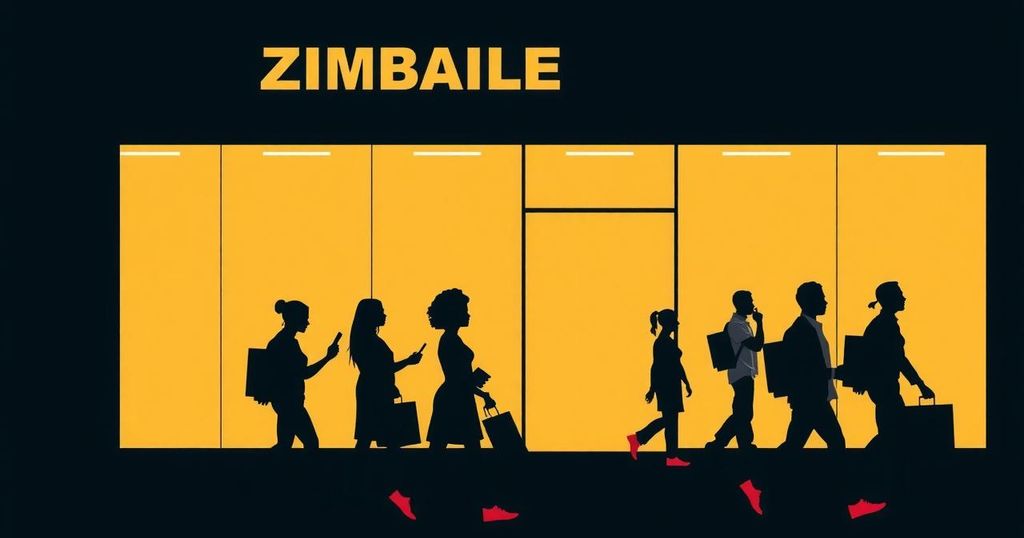Top retailers in Zimbabwe, including OK Zimbabwe and Spar, are warning that without government intervention on exchange rate policies, they may be forced to close stores. The official exchange rate is set at 14.8 ZiG per USD, while the black market undervalues the Zimbabwe Gold (ZiG) by nearly 80%, leading to uncompetitive prices for formal stores. The Retailers Association of Zimbabwe has called for urgent reforms to stabilize the sector amidst this economic crisis.
The retail sector in Zimbabwe is facing a critical situation, with major retailers warning of imminent store closures due to adverse official exchange rate policies imposed by the government. The nation’s gold-backed currency, known as the Zimbabwe Gold (ZiG), has depreciated drastically, losing nearly 80% of its value on the black market, where it trades between 20 and 26 ZiG per US dollar, in stark contrast to the official rate of 14.8 ZiG per dollar mandated by the government. This disparity has generated considerable challenges for prominent retail chains such as OK Zimbabwe, Spar, and TM Supermarkets, which are compelled to maintain higher prices, thereby alienating customers who opt for more affordable options available through informal market retailers. The Retailers Association of Zimbabwe (RAZ) has characterized this situation as ‘untenable’, emphasizing the urgent need for government intervention to restructure the existing pricing model to reflect real-time market conditions, in order to alleviate the financial strains on retailers. Investors and stakeholders should carefully observe the unfolding developments in Zimbabwe’s economic landscape. The forced use of an inflated official exchange rate is diminishing profit margins, complicating the ability of formal retailers to compete with those operating on realistic black market rates. Should the government fail to implement policy adjustments, the country risks facing prolonged economic instability, which would subsequently affect various sectors beyond retail. Moreover, this crisis is emblematic of Zimbabwe’s lengthy struggle with currency stabilization, marking yet another chapter in its ongoing economic saga. This is the sixth attempt at stabilization by the government in a span of 15 years, indicating a cycle of erosion of public confidence in the nation’s economic strategies. Without significant policy reforms aimed at fostering currency stability, Zimbabwe could endure deeper economic challenges that have the potential to disrupt not only retail operations but also the broader regional economy.
Zimbabwe is currently grappling with a severe economic crisis characterized by rampant inflation and instability, greatly influenced by misguided currency exchange policies. Following long-standing difficulties with currency management, the government introduced the Zimbabwe Gold (ZiG) backed currency; however, its rapid devaluation has led to a stark contrast between official and black market rates. This economic turmoil has directly impacted retail operations, compelling formal retailers to navigate an increasingly hostile business environment driven by uncompetitive pricing strategies. The Retailers Association of Zimbabwe (RAZ) is appealing for governmental changes to ensure a viable future for both retailers and consumers alike, as all stakeholders are keenly aware of the far-reaching implications of these economic challenges.
In summary, the precarious state of Zimbabwe’s retail sector serves as a clear indication of the damaging effects of misguided exchange rate policies. Major retailers face increasing pressure to adapt to unrealistic official rates while competing against informal market operations. A shift towards a more flexible pricing model that reflects actual market dynamics is essential for restoring viability within the retail sector. Continuous monitoring of governmental policy responses is imperative, as failure to address the existing economic landscape may lead to further instability and potential investor attrition.
Original Source: finimize.com






